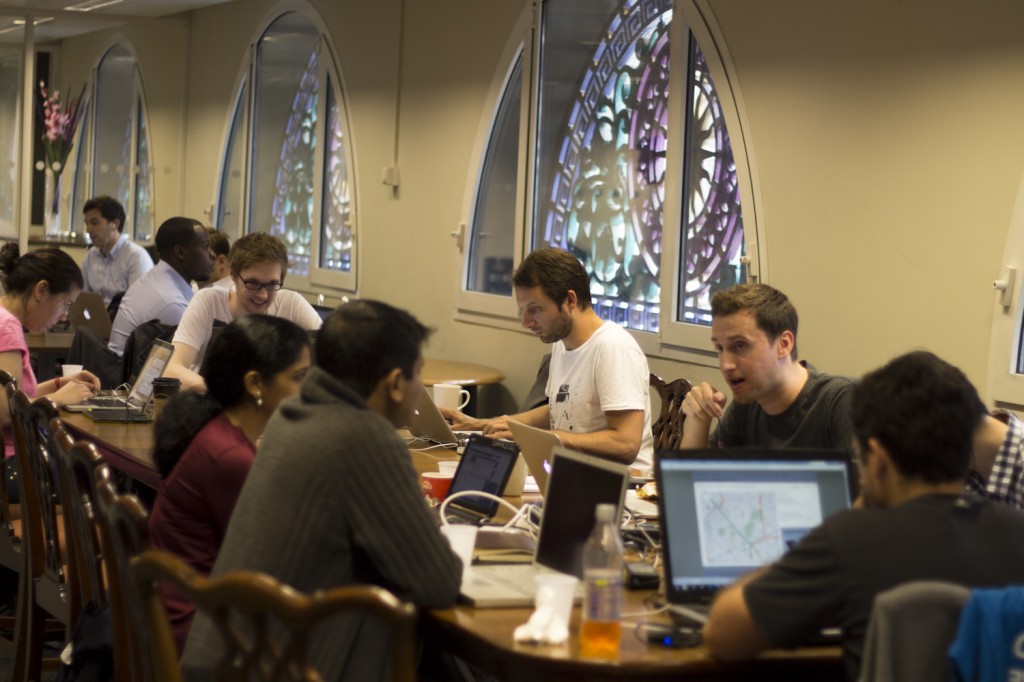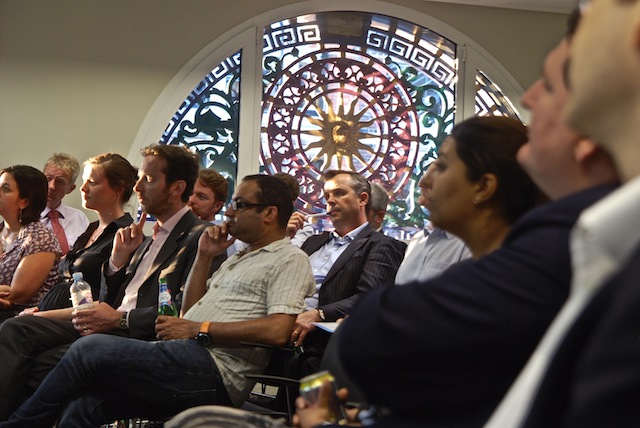Does your business want to support Anywhere Working?
Sign up to support Anywhere Working today to become a member of the community and unlock a range of exclusive features including: member-only content, case studies, access to community-led forums and the opportunity to become an Anywhere Working blogger.Guest Blog Post: Co-working spaces for start-ups
By Emily
Peter Thomson is a London based Digital Brand Strategist specialising in social media for technology companies. For #AWKickstart month, we asked Peter how he has seen freelancers and start-ups use co-working spaces.
Co-working spaces have been around for several years but the number of spaces has increased rapidly in the last twelve months. This explosion has been good for entrepreneurs and mobile workers because it provides the community with more diverse choices. But it has also increased the confusion about the different options. In London the number and range of co-working spaces has increased so fast that more established organisations are now being forced to adapt to changes in the market. The Innovation Warehouse has recently re-branded and launched a new angel investing network.
The Innovation Warehouse provides a mix of co-working, incubation and acceleration so we have a good overview of the market and the differences among the experience of members for each type of programme. Every space and programme is different but the common themes include:
1. Co-working spaces provide a mix of open-space hot-desking for individuals and fixed-location shared office-space for teams.
2. Incubators help turn ideas into businesses by running medium intensity programmes and taking a small fee or equity in the company.
3. Accelerators turn early-stage teams into high-growth companies by running high intensity programmes and take a solid chuck of equity in return.
There are other models like direct angel investment, mentoring programmes, government schemes and the new ‘start-up studios’ (who incubate their own ideas rather than outside ideas). Co-working spaces can be the most flexible because you can then choose your own mentors, advisors and investors.
The most important thing for an entrepreneur to consider is the personality fit with the staff and the other participants.
Most co-working spaces host lots of meetup events which are a great way to check out the space and meet like-minded people. The mood and tone of the spaces can be subtlety different. Do you prefer a buzzy cafe-style space or a more focused and productive environment? You can always ask to visit the space during the day and sit for a few hours to get a feel for the space.
Some spaces suit freelancers and mobile workers while other spaces are intended more for entrepreneurs in particular industries.
One way of evaluating a space is to talk to existing members about their experiences through Twitter or Facebook groups.
Many spaces offer membership tiers with a smaller number of days per month. These are great for flexible working because you can mix and match the space you go to on any given day. Look for access to meeting rooms, networking events and a community that you get along well with. It’s also worth checking the flexibility around adding extra team members as you grow.


